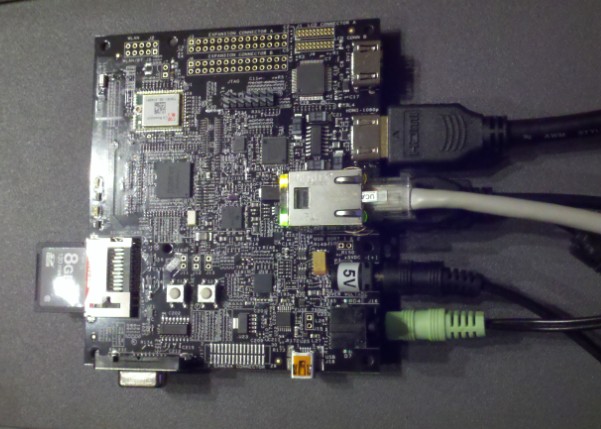My PandaBoard still has not yet arrived, but I was able to get a loaner to explore buffers in PulseAudio. Since it is not mine, I have not mounted it on it’s own fancy custom mounting base platform (cardboard) like I did with my BeagleBoard. But, the Panda arrives with it’s own fancy little rubber feet that work fine as standoffs. Here’s what it looks like all hooked up.
Once I figured out where to get an Ubuntu image for it, it was pretty easy to get it up and running. All you have to do is go to the website below and follow the instructions. You will get the Ubuntu Netbook 10.10 image and then write the raw image to a SD card. Simple.
Follow the instructions at https://wiki.ubuntu.com/ARM/OMAPMaverickInstall
I did have lots of trouble getting the ubuntu-omap4-extras installed. I could never get the graphical method to work properly, but I did follow the comand line method further down the page on the website listed below and finally got it to install.
Follow the command line installation instructions at: http://www.omappedia.org/wiki/PandaBoard_Ubuntu_PPA
And finally, for help in many areas not covered here, if you have not already, read all you can at: http://www.omappedia.org/wiki/Main_Page
